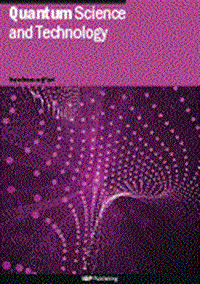Error-tolerant witnessing of divergences in classical and quantum statistical complexity
IF 5
2区 物理与天体物理
Q1 PHYSICS, MULTIDISCIPLINARY
引用次数: 0
Abstract
How much information do we need about a process’ past to faithfully simulate its future? The statistical complexity is a prominent quantifier of structure for stochastic processes. Quantum machines, however, can simulate classical stochastic processes while storing significantly less information than their optimal classical counterparts. This implies qualitative divergences between classical and quantum statistical complexity. Here, we develop error-tolerant techniques to witness such divergences, enabling us to account for the inevitable imperfections in realising quantum stochastic simulators with present-day quantum technology. We apply these tools to experimentally verify the quantum memory advantage in simulating an Ising spin chain, even when accounting for experimental distortion. This then leads us to observe a recently conjectured effect, the ambiguity of simplicity—the notion that the relative complexity of two different processes can depend on whether we model the process using classical or quantum means of information processing.经典和量子统计复杂性发散的容错见证
我们需要多少关于一个过程的过去的信息来忠实地模拟它的未来?统计复杂度是随机过程结构的重要量化指标。然而,量子机器可以模拟经典的随机过程,而存储的信息却比最优的经典机器少得多。这意味着在经典和量子统计复杂性之间存在定性分歧。在这里,我们开发了容错技术来见证这种分歧,使我们能够解释用当今量子技术实现量子随机模拟器时不可避免的缺陷。我们应用这些工具来实验验证量子存储在模拟伊辛自旋链中的优势,即使考虑到实验畸变。这就导致我们观察到一个最近推测的效应,即简单性的模糊性——两个不同过程的相对复杂性可能取决于我们是使用经典的还是量子的信息处理方法来建模这个过程。
本文章由计算机程序翻译,如有差异,请以英文原文为准。
求助全文
约1分钟内获得全文
求助全文
来源期刊

Quantum Science and Technology
Materials Science-Materials Science (miscellaneous)
CiteScore
11.20
自引率
3.00%
发文量
133
期刊介绍:
Driven by advances in technology and experimental capability, the last decade has seen the emergence of quantum technology: a new praxis for controlling the quantum world. It is now possible to engineer complex, multi-component systems that merge the once distinct fields of quantum optics and condensed matter physics.
Quantum Science and Technology is a new multidisciplinary, electronic-only journal, devoted to publishing research of the highest quality and impact covering theoretical and experimental advances in the fundamental science and application of all quantum-enabled technologies.
 求助内容:
求助内容: 应助结果提醒方式:
应助结果提醒方式:


